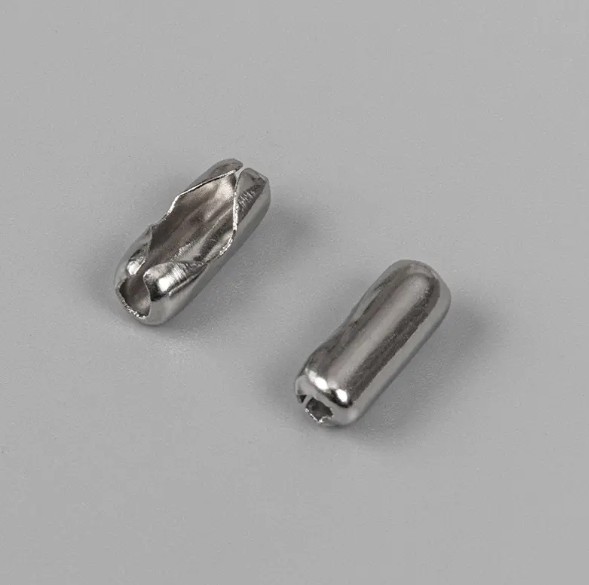Roman Blind Components and Parts
Details
Metal Chain Connector are usually made of high-strength metal, with high mechanical strength and stability, and can withstand large tension and friction. However, chains or ropes of different materials have differences in physical and chemical properties, such as hardness, elastic modulus, thermal expansion coefficient, etc., which may affect the compatibility of connectors.
The compatibility of Metal Chain Connector depends first on how well they match the diameter of the chain or rope. The inner diameter and hole size of the connector must strictly correspond to the diameter of the target chain/rope to ensure that there is no looseness or excessive extrusion after connection. For example, industrial-grade G80 manganese steel chain connectors usually provide multiple specifications to adapt to chains of different diameters. If the rope diameter is too small, it may cause the connection to slip; if the diameter is too large, it may cause the connector to deform or the chain to be damaged due to forced extrusion. Therefore, accurately measuring the chain/rope diameter and selecting a connector of the corresponding specifications is the first step to ensure compatibility.
The compatibility of metal connectors with chains or ropes of different materials requires comprehensive consideration of physical properties such as hardness, elastic modulus, and thermal expansion coefficient. For example, metal chains and metal connectors have similar strength and hardness, and are generally compatible; while non-metallic materials such as nylon ropes and polyester ropes have low elastic moduli and may creep or relax due to long-term stress. In addition, chemical corrosion is also a key factor: in humid or acidic environments, metal connectors need to have anti-corrosion coatings, while plastic ropes need to avoid long-term contact with certain metals to prevent electrochemical corrosion. Therefore, it is necessary to select the appropriate connector type or surface treatment process according to the material characteristics.
Environmental conditions are an important external factor affecting connector compatibility. In a humid environment, metal connectors that have not been treated with rust prevention may lose strength due to oxidation, thereby affecting the reliability of the connection with the chain; in high-temperature scenarios, plastic ropes may soften and deform, while metal connectors need to consider differences in thermal expansion coefficients to avoid loosening. For example, metal connectors for outdoor sunshades need to pass salt spray tests to verify corrosion resistance, while connectors for high-temperature industrial equipment need to use materials with better thermal stability. Therefore, it is necessary to select connectors with corresponding protective performance according to the specific application environment.
In scenarios with frequent pulling, connectors need to have excellent fatigue resistance. Repeated friction between metal chains and connectors may cause wear, while dynamic stretching of ropes may cause stress concentration at the connection. For example, the bead connection buckle of the Mirabead Curtain needs to pass a high-frequency pull test to verify its durability, while the industrial chain connector must meet the fatigue life requirements of the ISO 1834 standard. In addition, the structural design of the connector is also the key to improving dynamic compatibility. Therefore, the long-term reliability of the connector needs to be verified through tests that simulate actual working conditions.
